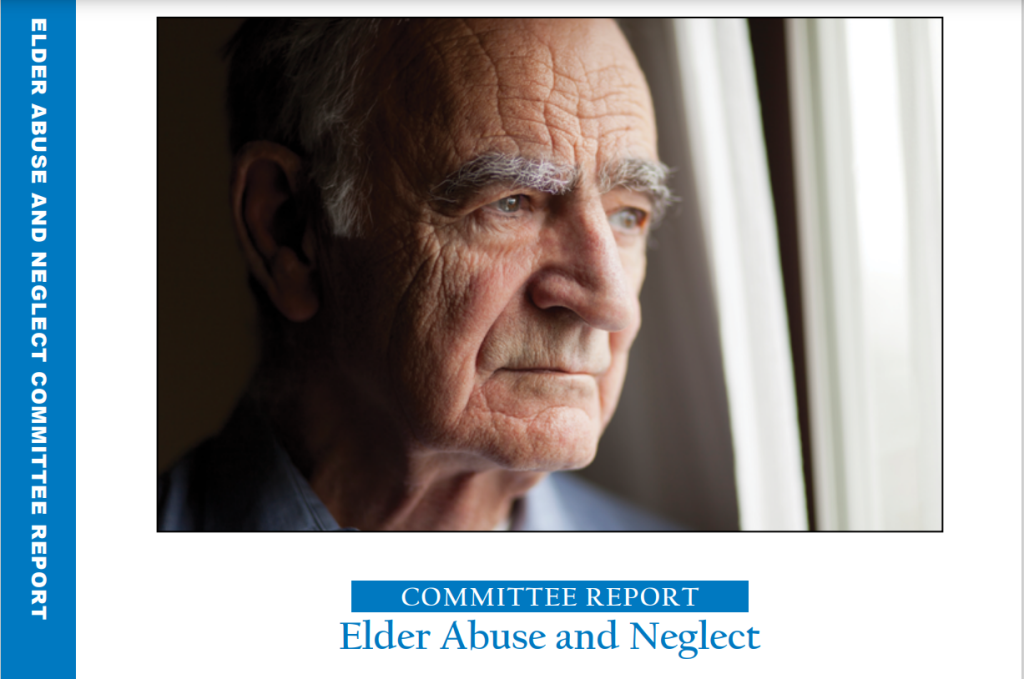BY J. CHADWICK SCHNEE, ESQ., THE LAW OFFICE OF TUCKER HULL, LLC
The COVID-19 pandemic has been challenging in many ways and, unfortunately, has prevented many of us from seeing loved ones, especially older relatives in nursing homes. While mental health issues are certainly not just confined to nursing homes, the pandemic has brought increased attention on mental health issues and the need to ensure that those with mental health issues have people able to make decisions for them with respect to their personal and financial affairs.
For the third week of #MentalHealthAwarenessMonth, the Law Office of Tucker Hull looks at proceedings under the Guardianship Act.
The Guardianship Act, 20 Pa.C.S. § 5501 et seq., applies to adults
whose ability to receive and evaluate information effectively and communicate decisions in any way is impaired to such a significant extent that he is partially or totally unable to manage his financial resources or to meet essential requirements for his physical health and safety.
20 Pa.C.S. § 5501.
Under the Guardianship Act, any person (not just a family member) interested in the welfare of a person alleged to be incapacitated may petition the local county court of common pleas to appoint a person or entity to serve as guardian over the alleged incapacitated person’s “estate” (as in, finances) and/or “person” (in other words, any other decision, such as medical decisions, housing, etc.).

The Guardianship Act requires that a hearing occur before a judge and that the hearing may be closed to the public and that a hearing may even occur at the residence of the alleged incapacitated person, rather than in a courtroom. Upon a showing of “clear and convincing evidence” (usually through a psychological evaluation and other evidence), a court may appoint a person, persons or an entity to serve as guardian of an individual found to be incapacitated.
What does it mean to be a guardian?
If a guardian is appointed, it essentially means that the guardian will stand in the shoes of the alleged incapacitated person for all important decisions (for financial decision, personal decisions or both). In other words, if a guardian is appointed, the person found by the court to be incapacitated will lose the ability to make such decisions, and, instead, the guardian will serve as the substitute decision-maker.
Even if a guardian is appointed, however, a guardian still needs to consult with the person found to be incapacitated to the fullest extent possible with respect to decisions.
Why is guardianship important?
Ever wonder who becomes a victim to telemarketer calls, phishing emails and other scams? Individuals will a diminished mental capacity may tell fall victim to such scams (all of which are forms of elder abuse) and may well repeatedly give away large sums of money to scammers. In cases of financial victimization, a guardian can limit access to bank accounts in order to shut down would-be scammers.
In far too many cases, elderly individuals may be living in deplorable conditions as a result of hoarding or just an inability to recognize certain lifestyle limitations. In such cases, a guardian can step in and either restore a home to a livable condition or help a person move to a better environment.
How do I see if guardianship is the best solution for my family member?
The attorneys at the Law Office of Tucker Hull have been involved in dozens (if not hundreds) of guardianship proceedings over the years and know exactly how to successfully petition a court for guardianship, if necessary. Get in touch with the attorneys at the Law Office of Tucker Hull by contacting them at 717-685-7947 or by emailing them at stephanie@tucker-hull-law.com or chadwick@tucker-hull-law.com.


